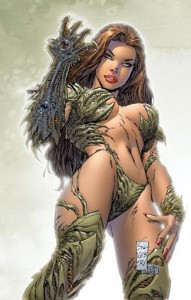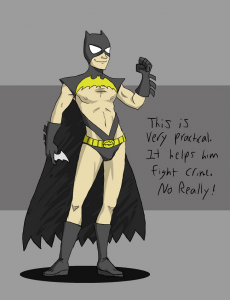Lee Weatherly asked how second book syndrome affected me:
“By ‘second book syndrome’ I’m talking about the difficulties that come with writing your first commissioned title – usually with your first book, you write it on your own time, there’s no real pressure, etc – then with the second book, suddenly you have a deadline and a publisher’s expectations. What was once just your passion is now your job, with all the stress that can entail; how do you make the shift? Also, if your first book does very well or sells for a lot of money, that can (perversely) just make the second book far harder to write.”
Rhiannon Lassiter replies:
 When I was 19 I was offered a two book contract on the basis of one book part written and one yet to be decided. Second book syndrome kicked in while I was still at university and still very unsure of my own ideas. I suggested a second book in the same series, a sequel to my first, or rather the middle book of a possible trilogy. It wasn’t my aim was to push the company into contracting me for a third. Although I had a number of new ideas I also wanted to continue the story I’d started with the characters of my first novel. Ultimately what decided the issue was that the first novel was selling well and the publishing company seemed keen to continue with more. They published the whole trilogy, which continues to sell well to this day.
When I was 19 I was offered a two book contract on the basis of one book part written and one yet to be decided. Second book syndrome kicked in while I was still at university and still very unsure of my own ideas. I suggested a second book in the same series, a sequel to my first, or rather the middle book of a possible trilogy. It wasn’t my aim was to push the company into contracting me for a third. Although I had a number of new ideas I also wanted to continue the story I’d started with the characters of my first novel. Ultimately what decided the issue was that the first novel was selling well and the publishing company seemed keen to continue with more. They published the whole trilogy, which continues to sell well to this day.
However, in retrospect, I made the wrong decision about that second book. If I hadn’t been working on my first degree at the time and struggling with balancing academia and creative writing; or if I’d been more commercially minded, or thought more towards future development – I would have decided differently.
Most professional writers come to writing as their second career. They have some experience in the job market already. They’ve had a different career path and made time for their writing on the side, squeezing their evenings and weekends until they had something they could sell and make enough money to afford to write part time or full time.
I started writing full time straight out of university. I was working on my trilogy and was feeling positive about more contracts ahead. But once my only job was to write and I’d locked myself into this particular idea I started to notice an artistic issue with what I was writing. I was having so many ideas for so many new novels and new ways to write but in this particular trilogy I needed to stay true to the style and concept of the original book.
By the time I started writing my fourth novel I felt I ought have been much more developed as a creative artist than I was. The novel I wrote then was at a complete and wild variance to my previous work. My ideas have always spanned a wide range of genres and as my writing career has developed I’ve had published books across a range about half as wide. I’m lucky that I’ve been able to sell YA and junior, fantasy, SF and contemporary fiction ideas. But I should have started earlier.
Several years later a friend of mine published her first novel and told me she’d been offered another contract and the option of writing a sequel to her first book. I advised her against it. I suggested she write something completely different in another genre to avoid boxing herself in too soon. That’s what she did, and after three more successful novels returned to the world of her first book from the position of being much more assured in her craft, with a established list of novels in different styles and a new perspective on the earlier work.
My friend and I have both achieved success in writing across genres and styles but if you don’t want to be stereotyped early, I’d recommend avoiding series fiction as your entry into professional writing. As a newly published author – as any kind of author – your mind will be seething with ideas; you need to allow yourself time to experiment with them.
Writing full time is not the best career for a new graduate with no experience of the rest of the working world. I was incredible fortunate in that I had the opportunity to do this. But I started with no experience in managing my finances and planning my workload. The way that writers are paid advances (on signature, delivery and publication) and royalties (twice a year after advances have earned out) means that financial forward planning is virtually impossible because it all depends on the market. Don’t take for granted sales figures that make it possible to work full time as a writer; the period in which your book is on sale in bookshops, being reviewed and noticed and marketed is fleeting.
Ultimately second book syndrome leads to third book syndrome and fourth book syndrome and so on. I know authors who have published hundreds of books; but managing publishers expectations and your own expectations of your work never ends. The lessons that you learn are to give yourself space and to be kind to yourself about your workload and rigorous when it comes to your art. Every writer has to learn that individually but I’d recommend gaining self knowledge of what kind of writer you are by stretching the boundaries of possibility as soon as you can. Whether it’s your work space (and I redesigned mine on a yearly basis until about three years ago) or the time you set aside or your style, or genre or whatever makes you individual, expand to your boundaries, learn them and break them.
The second novel is too soon for you to decide your identity.
 Roleplaying games (RPGs) are one of the most popular ways to experiment with your own stories. Unlike most computer games they are designed to be customisable. You can choose your character, your race, your skills, your weapons and your future. Playing in a group of people with a games master (GM) your characters explore a fantasy world.
Roleplaying games (RPGs) are one of the most popular ways to experiment with your own stories. Unlike most computer games they are designed to be customisable. You can choose your character, your race, your skills, your weapons and your future. Playing in a group of people with a games master (GM) your characters explore a fantasy world.  That’s how it is, for sure. But it’s not how things should be. If toughness is the province of one gender and sexiness the other everyone is impoverished. Imagine if the boot was on the other foot. What if the women got the armour and the men the armour: could Batman take himself seriously in the outfit Fernacular has sketched? (See more reimaginings here)
That’s how it is, for sure. But it’s not how things should be. If toughness is the province of one gender and sexiness the other everyone is impoverished. Imagine if the boot was on the other foot. What if the women got the armour and the men the armour: could Batman take himself seriously in the outfit Fernacular has sketched? (See more reimaginings here) I have written three
I have written three  Perhaps the author has other projects on the go. George R R Martin and his fan base fell out with each other over the fans demands for more Ice and Fire novels and their criticism of Martin for working on anything else. On the one hand I completely appreciate (and share) their frustration, on the other hand writing cannot be produced on command.
Perhaps the author has other projects on the go. George R R Martin and his fan base fell out with each other over the fans demands for more Ice and Fire novels and their criticism of Martin for working on anything else. On the one hand I completely appreciate (and share) their frustration, on the other hand writing cannot be produced on command. Perhaps the author doesn’t know how to finish the books. After a gap of seven years this is entirely a possibility for me but it’s not been tested. I had a plan for how to finish these books and I remember a lot of it and I even have notes towards them. But with each year that passes it becomes less likely that I will complete the series if only because my writing evolves and I might be danger of pastiching my own style in returning to an earlier one. These are the risks of series fiction and why I now concentrate on novels which don’t depend on sequels.
Perhaps the author doesn’t know how to finish the books. After a gap of seven years this is entirely a possibility for me but it’s not been tested. I had a plan for how to finish these books and I remember a lot of it and I even have notes towards them. But with each year that passes it becomes less likely that I will complete the series if only because my writing evolves and I might be danger of pastiching my own style in returning to an earlier one. These are the risks of series fiction and why I now concentrate on novels which don’t depend on sequels. When I was 19 I was offered a two book contract on the basis of one book part written and one yet to be decided. Second book syndrome kicked in while I was still at university and still very unsure of my own ideas. I suggested a second book in the same series, a sequel to my first, or rather the middle book of a possible trilogy. It wasn’t my aim was to push the company into contracting me for a third. Although I had a number of new ideas I also wanted to continue the story I’d started with the characters of my first novel. Ultimately what decided the issue was that the first novel was selling well and the publishing company seemed keen to continue with more. They published the whole trilogy, which continues to sell well to this day.
When I was 19 I was offered a two book contract on the basis of one book part written and one yet to be decided. Second book syndrome kicked in while I was still at university and still very unsure of my own ideas. I suggested a second book in the same series, a sequel to my first, or rather the middle book of a possible trilogy. It wasn’t my aim was to push the company into contracting me for a third. Although I had a number of new ideas I also wanted to continue the story I’d started with the characters of my first novel. Ultimately what decided the issue was that the first novel was selling well and the publishing company seemed keen to continue with more. They published the whole trilogy, which continues to sell well to this day.
